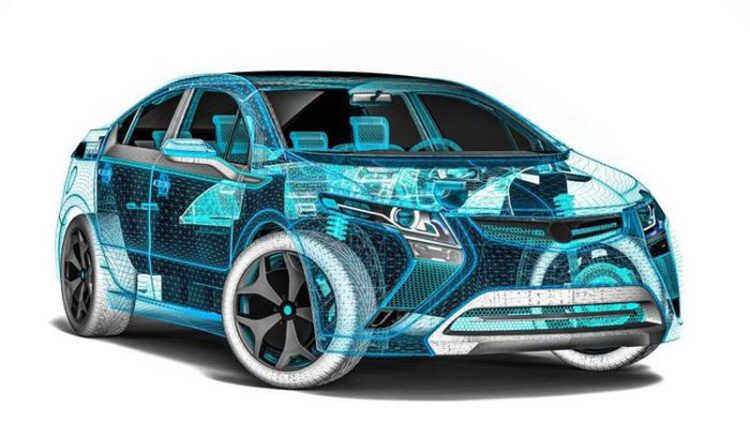Updating cars as fast as a smart phone

Work of researchers involved in the new Collaborative Research Center of KIT is aimed at updating cyber-physical systems, such as cars, as easily as a smart phone. (Photo:Bildagentur PantherMedia/solcansergiu)
Credit: Bildagentur PantherMedia/solcansergiu
New Collaborative Research Center for Software Methods at KIT – DFG funds excellent KIT research with around EUR 11 million.
Cyber-physical systems, such as vehicles, trains, airplanes, smart homes, or production facilities, combine electronic and mechanical elements with software. Development of these systems is highly complex due to the large number of dependencies among the components. “When a car’s wire harness is modified, the diameter of the cable duct also has to be changed,” says Professor Ralf Reussner, Spokesman of the CRC at KIT. This must be agreed upon by electrical engineers, software engineers and mechanical engineers. Agreement is also required when modifying the software. In industry, this is done at regular meetings of the experts from the disciplines involved. These processes are very tedious, slow, and error-prone, Reussner says. “It would be ideal to update a car as quickly and easily as a smart phone and to just buy and download new functions.”
New Methods for Accelerated Industrial Development
The CRC is designed to study software engineering methods to structure and organize development work relating to CPS. The resulting new CPS design methods are expected to accelerated, agile development cycles for cyber-physical systems. For this purpose, about 20 new positions for excellent researchers will be created at KIT.
CRCs are long-term research structures of universities, in which researchers collaborate in a multi-disciplinary program. CRCs are funded by the German Research Foundation (DFG). The funding period ranges from four to twelve years. The CRC “Konsistenz in der sichtenbasierten Entwicklung Cyber-Physikalischer Systeme” (consistence in the view-based development of cyber-physical systems) is the sixth CRC at KIT. Among the partners are TU München, TU Dresden, and the University of Mannheim.
More Information:
https://gepris.dfg.de/gepris/projekt/389000774?context=projekt&task=showDetail&id=389000774&
Media Contact
All latest news from the category: Automotive Engineering
Automotive Engineering highlights issues related to automobile manufacturing – including vehicle parts and accessories – and the environmental impact and safety of automotive products, production facilities and manufacturing processes.
innovations-report offers stimulating reports and articles on a variety of topics ranging from automobile fuel cells, hybrid technologies, energy saving vehicles and carbon particle filters to engine and brake technologies, driving safety and assistance systems.
Newest articles

Sea slugs inspire highly stretchable biomedical sensor
USC Viterbi School of Engineering researcher Hangbo Zhao presents findings on highly stretchable and customizable microneedles for application in fields including neuroscience, tissue engineering, and wearable bioelectronics. The revolution in…

Twisting and binding matter waves with photons in a cavity
Precisely measuring the energy states of individual atoms has been a historical challenge for physicists due to atomic recoil. When an atom interacts with a photon, the atom “recoils” in…

Nanotubes, nanoparticles, and antibodies detect tiny amounts of fentanyl
New sensor is six orders of magnitude more sensitive than the next best thing. A research team at Pitt led by Alexander Star, a chemistry professor in the Kenneth P. Dietrich…





















